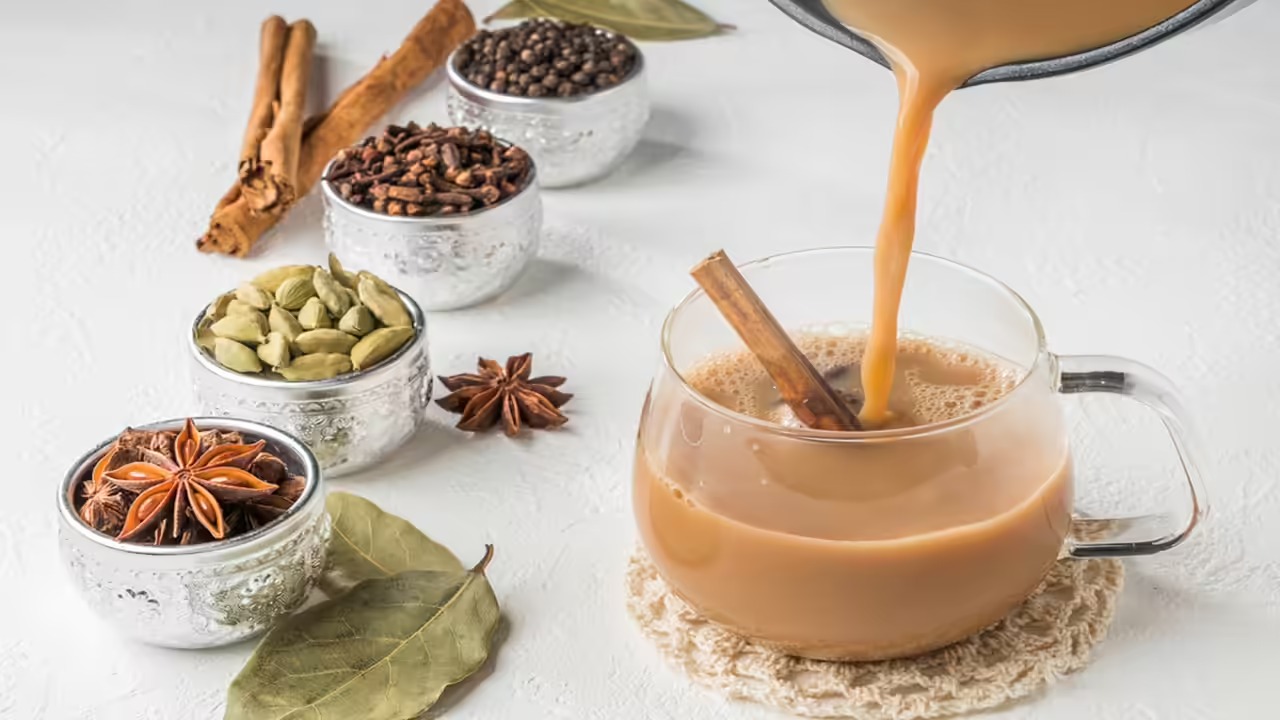For many, chai is more than just a drink—it’s a daily ritual, a comforting pause, and a social connector. But did you know that a slight change in how you brew your tea can enhance its nutritional value while making it even more delicious? Nutritionist Khushi Chhabra shares a simple yet powerful tip that can transform your everyday cup of chai into a healthier and more aromatic experience, supporting your overall well-being with hardly any added effort.
Key Highlights Of The Nutritionist’s Chai Brewing Hack
Covering your chai with a lid while brewing helps retain valuable antioxidants such as catechins and flavonoids, which tend to evaporate with steam when left uncovered.
Spices commonly used in chai like ginger, cardamom, clove, and cinnamon release essential oils that provide both flavor and digestive benefits; covering the pot preserves these volatile oils.
Brewing chai covered reduces excessive tannin release, which can cause bitterness, stomach irritation, and hinder nutrient absorption.
The method makes brewing more energy-efficient by trapping heat, speeding up the process, and reducing fuel or gas consumption.
This simple practice yields a smoother, less bitter, more flavourful tea with enhanced health properties.
Understanding The Health Benefits Locked In Your Chai Ingredients
Chai tea blends rich black tea leaves with aromatic spices that offer more than just flavor:
Black tea contains antioxidants like polyphenols, catechins, and theaflavins, known to combat oxidative stress and support heart and brain health.
Ginger holds anti-inflammatory compounds called gingerol, aiding digestion and soothing the gut.
Cardamom, clove, and cinnamon contain cineole, eugenol, and cinnamaldehyde, respectively, which not only enhance aroma but also promote digestive wellness and blood sugar regulation.
Preserving these essential oils through covered brewing makes every sip both tasty and therapeutically rich.
Why Reducing Tannins Matters For Your Gut
Tannins are natural plant compounds with antioxidant effects but can become problematic in excess:
Open boiling increases oxidation, causing tea to darken and develop bitter flavors due to a spike in tannin levels.
High tannin intake may irritate the stomach lining, cause acidity, and reduce absorption of minerals like iron.
Covered brewing keeps tannin levels moderate, resulting in a gentler cup that’s easier on sensitive digestive systems and enhances palatability.
How To Brew The Perfect Healthier Chai At Home
Start by bringing water to a boil in a covered saucepan or teapot.
Add quality loose tea leaves and your chosen spices such as freshly crushed ginger, cardamom pods, cinnamon sticks, and cloves.
Cover the pot with a tight-fitting lid to trap steam and heat.
Let the chai simmer gently for a few minutes. The lid will help retain nutrients and essential oils.
Add milk or a milk substitute, sweeten lightly if desired, and steep a little longer with the lid on.
Serve hot to enjoy the maximum flavor and health benefits.
Additional Tips To Make Your Chai Even Healthier
Use fresh, high-quality loose tea leaves instead of tea bags for richer flavor and better antioxidants.
Limit added sugar or replace it with natural sweeteners like honey or jaggery.
Avoid over-boiling or steeping too long, as excessive heat can break down beneficial compounds.
Experiment with additions like a pinch of black pepper or a slice of lemon post-brewing for enhanced taste and benefits.
Conclusion: Small Changes, Big Impact For Chai Lovers
This simple yet effective tip from nutritionist Khushi Chhabra elevates the age-old practice of chai brewing to a mindful wellness ritual. By merely covering your tea while brewing, you preserve vital nutrients and spices, reduce bitterness, and save energy—all adding up to a more fulfilling and health-supportive cup of chai. For the countless chai enthusiasts eager to nourish body and soul, this small switch can make every sip a celebration of flavor and health.
Sources: Hindustan Times, Economic Times, NDTV
